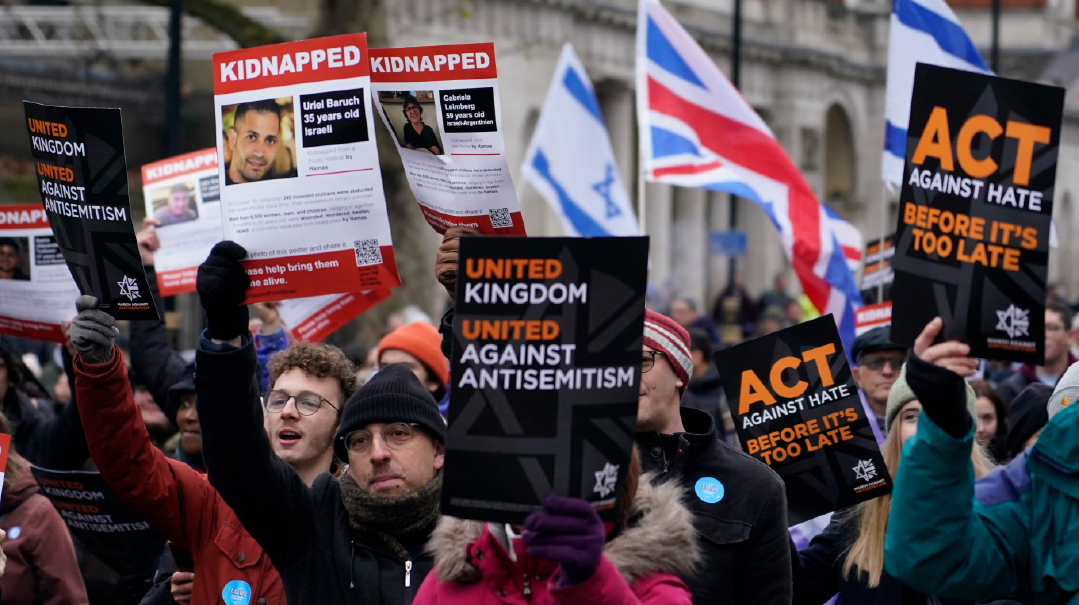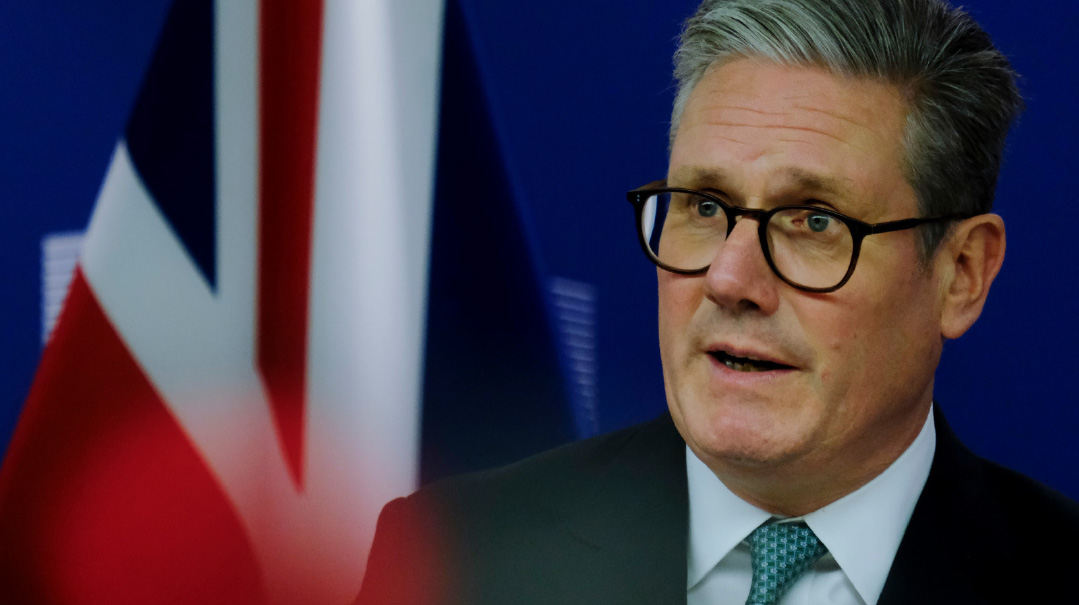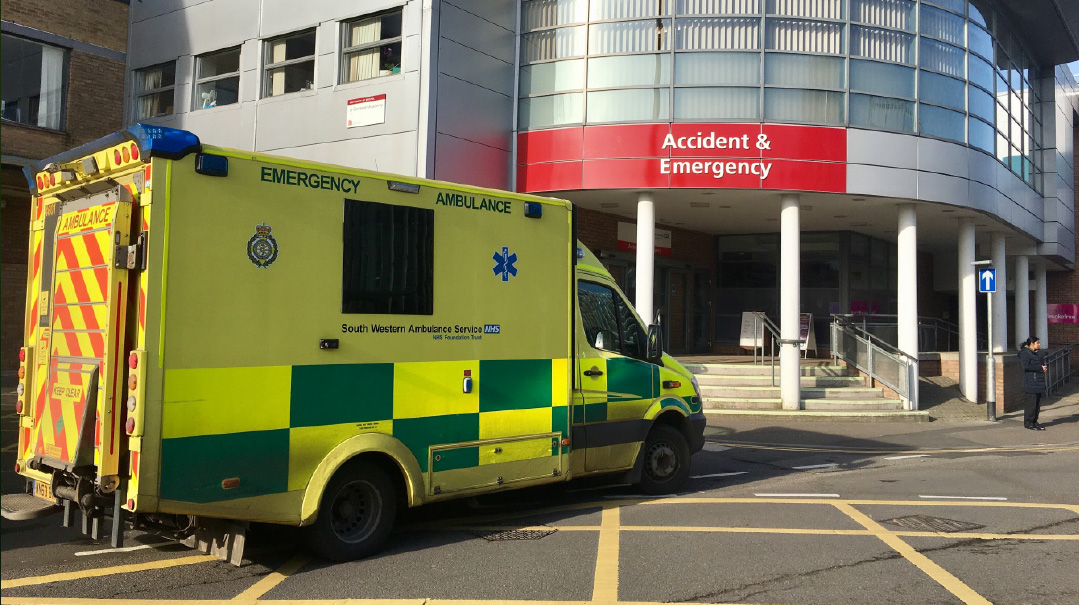A Peaceful London March, for a Change
| November 28, 2023An estimated 105,000 people gathered at the “March Against Anti-Semitism,” far exceeding even the rosiest forecasts

Photo: AP Images
Just how worried Britain’s Jewish community is by the open displays of anti-Semitism in recent weeks became clear at a massive rally in central London on Sunday. An estimated 105,000 people gathered at the “March Against Anti-Semitism,” far exceeding even the rosiest forecasts by event organizers.
Given that Britain’s entire Jewish population is about 280,000, it was a historic turnout. This compares to the 300,000 attendance for Washington’s “Stand with Israel” rally two weeks ago, in a country with one-fifth the US population, and one-twentieth of its Jewish population.
Highlighting the way that anti-Semitism is seen by many as a national problem, not just a Jewish one, many non-Jews turned out as well, from the Christian, Hindu, and Sikh sectors.
Chief Rabbi Ephraim Mirvis addressed the crowd, emphasizing the fact that the gathering was London’s largest demonstration against anti-Semitism since the 1936 “Battle of Cable Street.” At that event, hundreds of thousands of counter-demonstrators showed up at a march by Oswald Mosely’s fascist Blackshirt movement. He recalled the import of that historic event for the current moment.
“We must teach our children that the superheroes of our society are those who pursue peace and loving kindness, and not those who glorify violence and murder, and we must teach people that they must draw their conclusions from historical facts and not from what they see and hear on social media,” Rabbi Mirvis said.
Over the last two months, a survey conducted by the Campaign Against Anti-Semitism suggested that almost a half of the Jewish community have considered leaving the country due to the rise of anti-Semitism and the intimidation they feel from anti-Israel voices.
The center of London has become a no-go area for many Jewish people over the last two months as Palestinian marches take place, sometimes three times a week. Main train stations have become focal points of hated at which terror is glorified and anyone seen supporting Israel or the release of hostages is vocally condemned as a “supporter of genocide.”
A Climate of Fear
It was against this background that Gideon Falter, CEO of the London-based Campaign Against Anti-Semitism (CAA), decided to take action.
“We said we have to do something about this, and in a very short span of time,” Falter said.
The CAA embarked upon a mission of raising funds for advertisements, banners, a large sound stage at Parliament Square, all with a goal of bringing out a maximum of 20,000 to 30,000 supporters onto the streets.
The historic turnout exceeded all expectations. Crowds arrived from across the country on buses, trains, and the London Underground network, to gather outside the Royal Court of Justice in the center of the city.
At 1:45 p.m. the march began its slow progress to Parliament Square, led by community dignitaries and members of Parliament.
The march headed toward Temple Station turning right on the Embankment with the River Thames to the left, as freezing rain began to fall in bitterly cold weather conditions. But the mood was joyful as crowds waved their Israeli flags and British Union Jacks. At one point, the marchers even broke into a rendition of the national anthem, “G-d Save the King.”
Many observers noted the difference in tone between this march and the previous seven weeks of continuous violent pro-Palestinian demonstrations in London, Manchester, and other cities throughout the UK.
Journalists have been fearful of covering the anti-Israel marchers, and at least three separate teams from the conservative GB News network in the UK have been attacked by pro-Palestinian activists, who call them fascists and “supporters of genocide.” And there have been no Union Jacks flown at these gatherings; in fact, one was scheduled on Remembrance Day, in defiance of British patriotic sensibilities.
Perhaps fearing the worst, the police brought over a thousand officers into London from across the country to protect Sunday’s marchers. But at the actual event, police and other security officials looked relaxed. The only chants they heard were for “Peace” and “Free them now,” referring to the remaining Israeli hostages held by Hamas.
Working with the police in the massive operation were the Community Security Trust (CST) and its CEO, Mark Gardiner, who told Mishpacha, “This is the biggest operation we have ever conducted.”
Marchers passed Downing Street and slowly made their way into Parliament Square, where a massive stage and large speakers were set up.
What Comes Next?
Speaking on behalf of the government, Conservative MP Robert Jenrick, currently the minister of state for immigration, told the large crowd, “We will do whatever is needed to be done to stamp out anti-Semitism.” Jenrick also repeated his call to “deport the anti-Semitic migrants” to the sounds of huge applause.
But how much the government can do legally remains to be seen, as it is coming under increasing pressure to halt the illegal immigration into Britain.
Furthermore, the government has appeared hesitant in combatting the large, violent, anti-Semitic demonstrations against Israel the past few weeks. Home Secretary Suella Braverman publicly took the Metropolitan Police to task for failing to enforce anti-hate laws against the protestors — but was then made to step down from her government position. Police officials insisted they were taking proper action, and argued that the term “jihad” carries multiple meanings.
Peter Kyle MP spoke on behalf of the Labour front bench, and reiterated his party’s strong support for the Jewish community. Mr. Kyle said, “We cannot escape and cannot ignore the tsunami of anti-Semitism that has swept the country since October 7. Your community will never stand alone.”
Notably, some Labour front-benchers declared they would not attend this march — even though it was a march against anti-Semitism, not a march in solidarity with Israel.
Other speakers included Conservative MPs Tom Tugendhat and Robert Halfon, and Boris Johnson also joined the march at one point. Many rushed to have selfies with the former prime minister who is popular with the Jewish community. He later told LBC Radio how much he supported Israel and the contribution that Jewish people had made and were constantly making to the UK.
But the question going forward for the Jewish community is how to translate those warm sentiments into concrete action. Although Sunday saw strong messages of support from many friends of the Jewish community, this week anti-Israel haters were back out on the British streets again, calling last week’s event “a march for genocide.”
The question remains, what new legislation, if any, will be passed by the government to give police more power to tackle the anti-Semitic sentiment on the streets of Britain.
(Originally featured in Mishpacha, Issue 988)
Oops! We could not locate your form.







